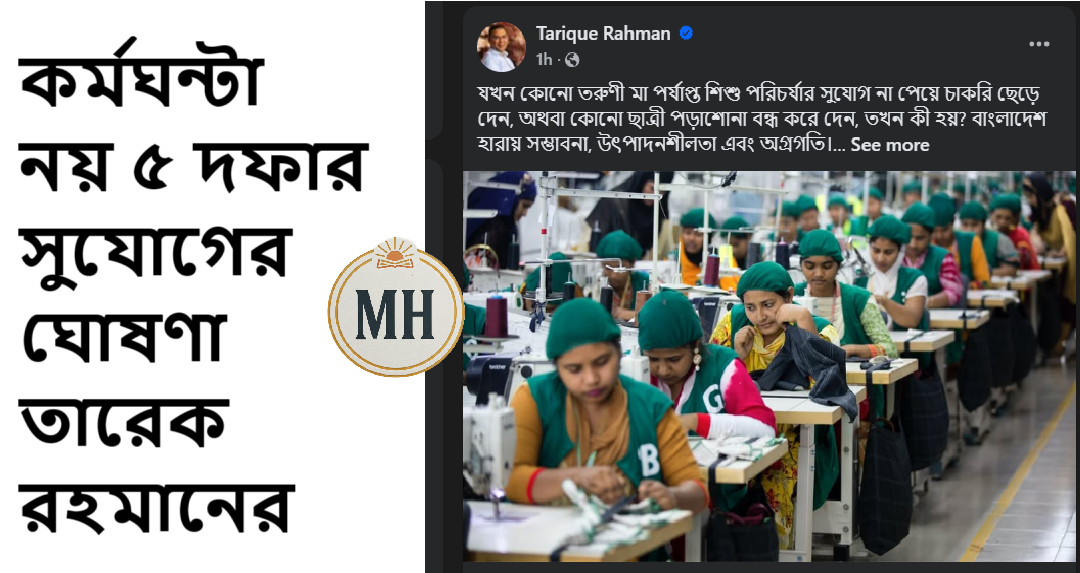


BNP’s Acting Chairman Tarek Rahman has unveiled a five-point national plan aimed at boosting women’s participation in Bangladesh’s economy by integrating childcare into the country’s development strategy.
In a statement posted on his official Facebook page, Tarek Rahman said, “When a young mother leaves her job or a student drops out because she cannot find childcare, Bangladesh loses potential, productivity, and progress.”
He emphasized that the BNP’s goal is to build a modern, people-centred Bangladesh where no woman has to choose between her family and her future.
Citing the 2024 BBS Labour Force Survey, Rahman noted that only 43% of women participate in the labour market compared to 80% of men, warning that “we are leaving more than half of our nation’s talent behind.”
To address this gap, the BNP is considering a nationwide childcare initiative as part of its economic reform agenda. The proposed five-point plan includes:
1️⃣ Establishing daycare centres in all public universities,
2️⃣ Gradually setting up daycare facilities in government offices,
3️⃣ Making daycare mandatory in large private institutions and factories,
4️⃣ Offering tax incentives and CSR credits to employers providing childcare, and
5️⃣ Launching training and certification for caregivers under the Ministry of Women and Children’s Affairs.
According to Rahman, this single reform could raise female employment, increase family incomes, strengthen the middle class, and add up to 1% to Bangladesh’s GDP. He highlighted that with women making up nearly two-thirds of the garments industry workforce, the contribution of working mothers must be recognized.
He referenced studies from the International Finance Corporation (IFC) and the International Labour Organization (ILO) showing that factories with childcare facilities experience higher retention, lower absenteeism, and recover their investment within a year.
“Childcare is not charity — it is socio-economic infrastructure,” Rahman said. “Just as roads connect markets, daycare connects women to opportunity.”
He reaffirmed the BNP’s vision of building an inclusive trillion-dollar economy by 2034, where every citizen—especially women—contributes to national growth with pride.
“We reject any regressive idea that limits women’s potential,” Rahman stated. “Empowering women through childcare, equal pay, and workplace safety isn’t just fairness—it’s smart economics.”
Concluding his message, Tarek Rahman called on the nation to “build a Bangladesh where every working mother and every student has the freedom to thrive, and where care within the community is recognized as the foundation of progress.”